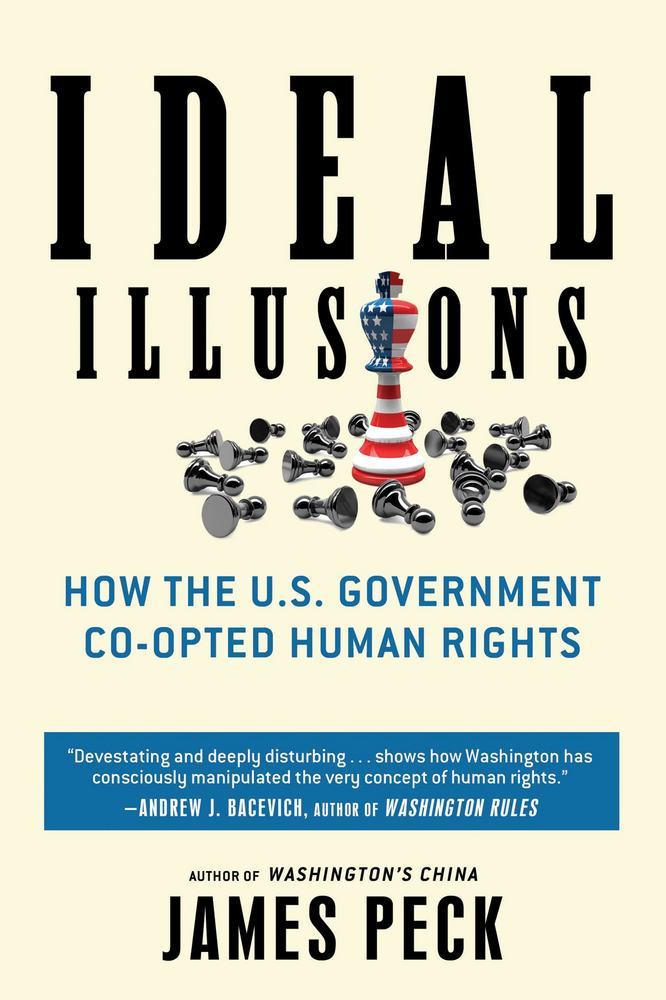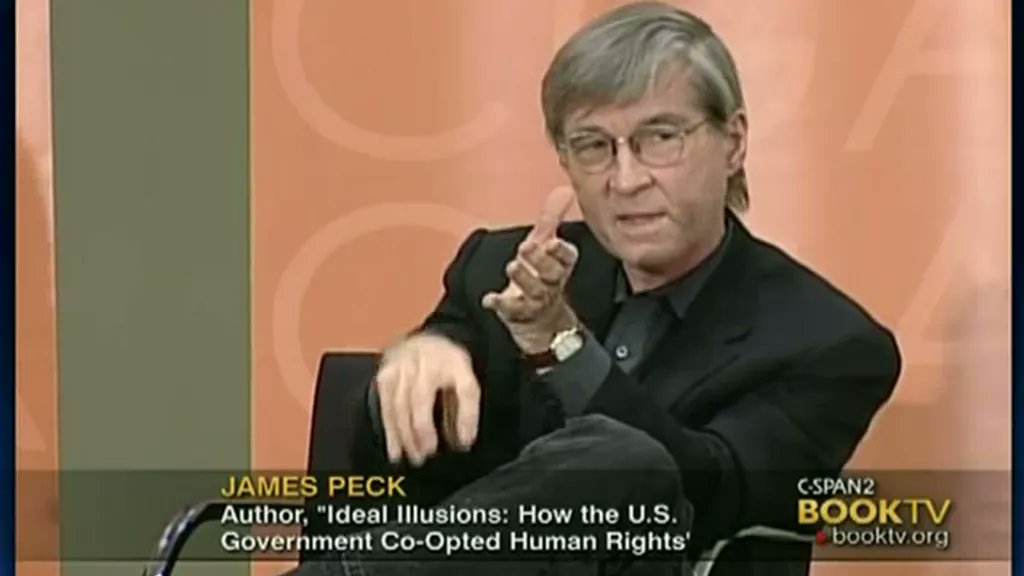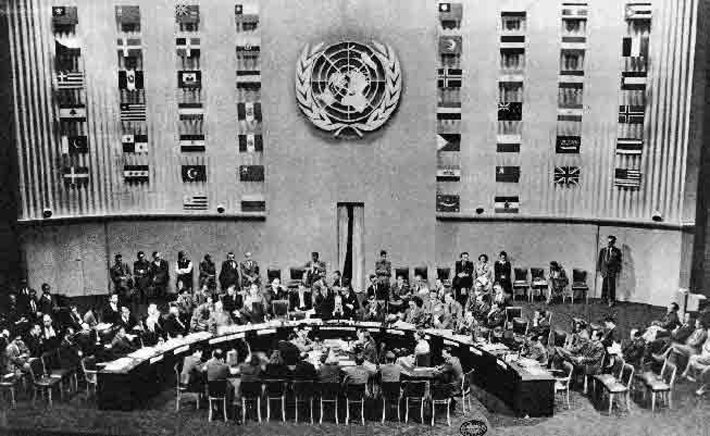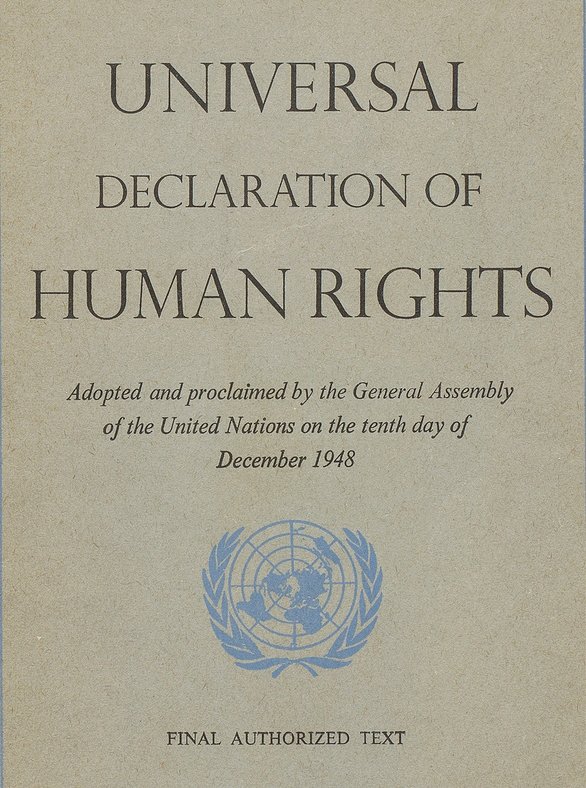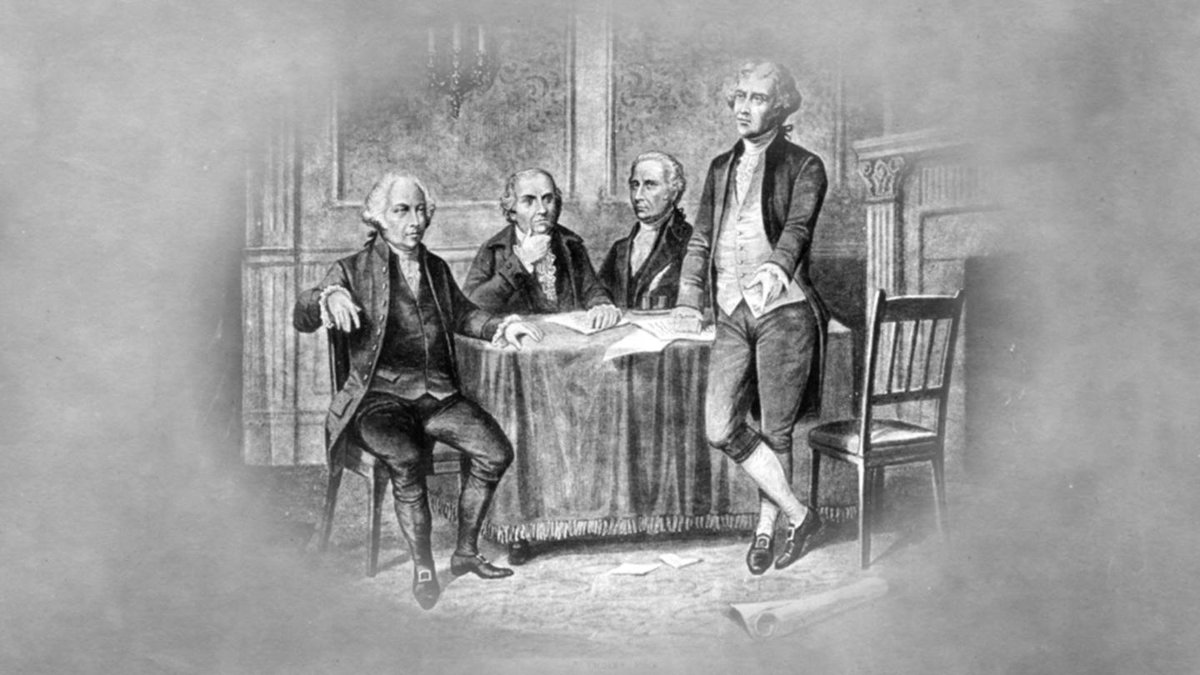
#AuratMarch Feminism vs Iqbal’s Idea of Feminism and Pakistan - Thread
Feminism, a social-political movement seeking equality of women with men, has its roots in the 18th century modernization, humanism and Industrial Revolution.
[1]

Feminism, a social-political movement seeking equality of women with men, has its roots in the 18th century modernization, humanism and Industrial Revolution.
[1]
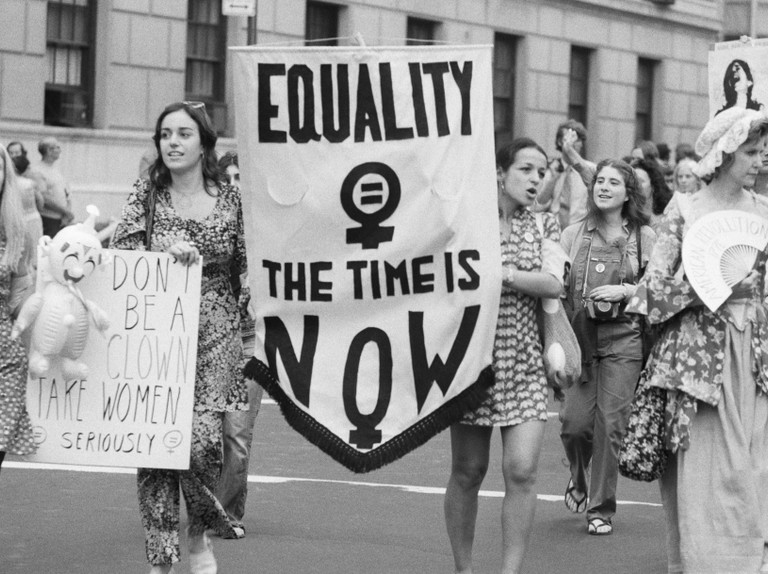

In developing countries like Pakistan, the concerns over women rights are genuine due to patriarchal notions embedded in the social fabric of South Asian society in general, however, steps in the right direction are being taken.
[2]
[2]
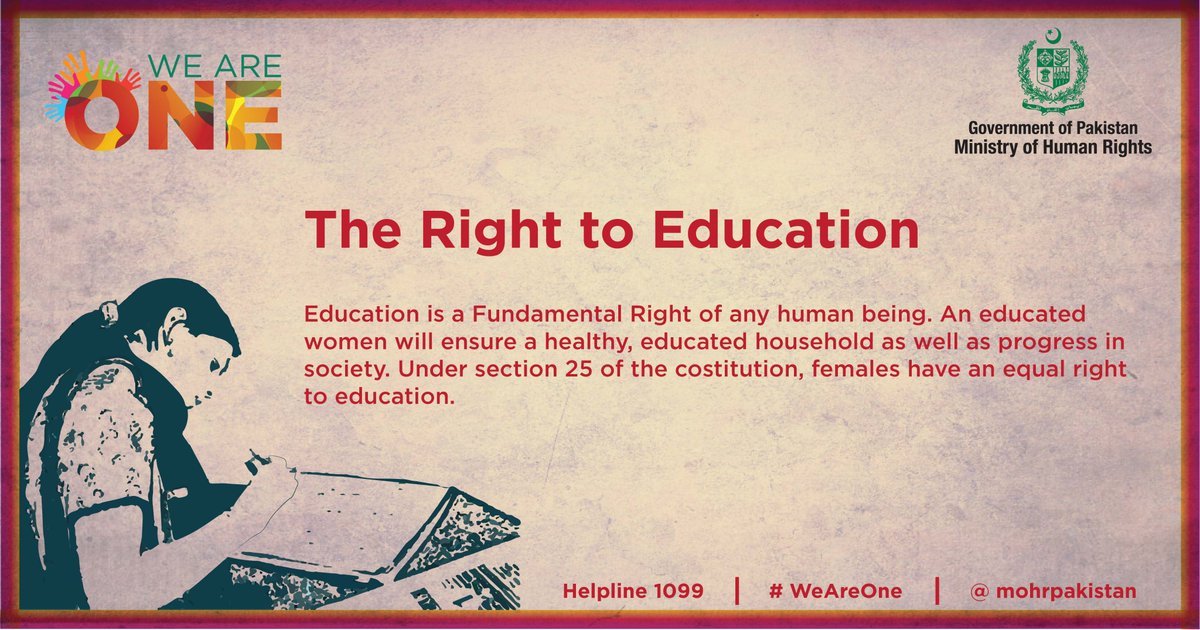
Social rights movements signify democracy. #AuratMarch, an annually held social-political March has been organized for the first time in Karachi in 2018 based on the theme of ‘Equality’.
[3]
[3]

In 2019, themed 'Sisterhood and Solidarity', #AuratAzadiMarch has been organized in Lahore and Karachi by Hum Auratein (We the Women), and in Islamabad, Hyderabad, Sukkur, Quetta, Mardan, and Faislabad, by Women Democratic Front (WDF), Women Action Forum (WAF), mainly.
[4]
[4]

Then, in 2020 #AuratMarch or #AuratAzadiMarch has been organized in Karachi, Hyderabad, Lahore, Quetta, Islamabad, Sukkur and Multan; as per Leena Ghani theme has been Khudmukhtari (autonomy) and violence, both sexual and economic.
[5]
[5]
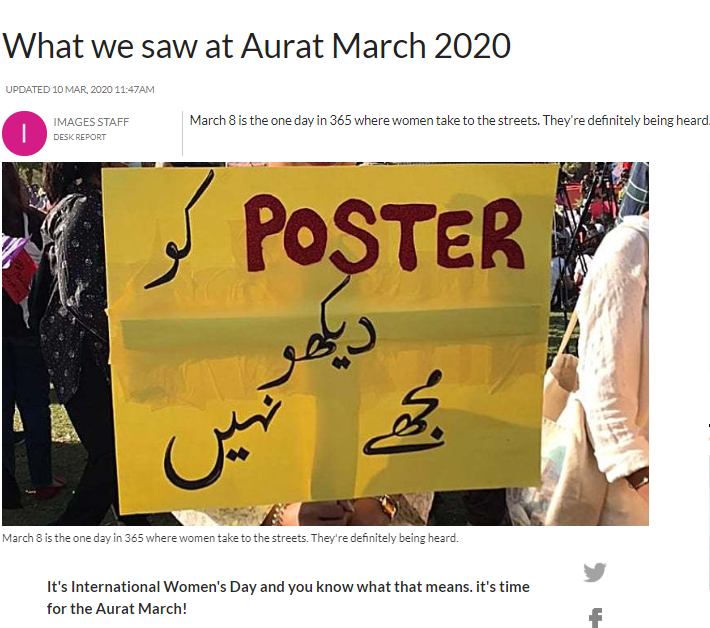
However, if you wonder why Pakistan’s women’s rights organizations aren’t able to garner mass public support, it’s due to the fact that such organizations are dominated by leftists, anarchists and subversive elements whose involvement for agenda-driven outcomes..
[6]
[6]
..undermine the entire spirit of the women rights. Excerpts from the Aurat March manifesto of 2019 and 2021 provide enough evidence to raise public concerns over its allegiances and the agenda being carried out.
[7]

[7]


Moreover, President Women Democratic Fund is Ismat Raza Shahjehan. Also, she is Deputy General Secretary of Awami Workers Party, and an activist of PTM. Interestingly, WDF, Aurat Azadi March and PTM, all emerged in 2018. A Coincidence?
[8]



[8]


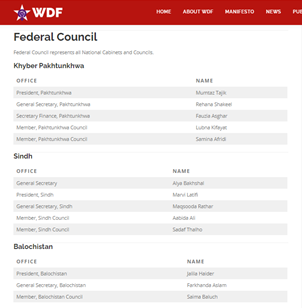

Aurat March organizers promoting PTM have also been exposed by EU Disinfo lab for getting support and funding from India. Such associations not only make social movements controversial; the issues also stay unaddressed.
[9]
[9]
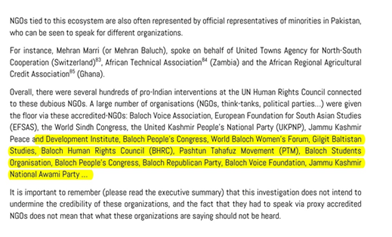
Since, in Pakistan the pattern being followed is similar to European Feminism in a sense that the notions of equality and freedom are being exploited without considering and addressing the ethnic and cultural diversity;
[10]
[10]
the then Western Secularism - separation of Church and State, versus in Pakistan - separation of Mosque and State in addition to challenging national security by inducing “Anti War, and War and National Oppression”, enthusing a ‘revolution’ as by product;
[11]
[11]
hence to consider Iqbal’s idea of Feminism for ideological underpinnings is a must.
Iqbal’s discourse, research and poetry especially in Ramooz-e-Bekhudi, Zareb-e-Kaleem, and Javed Nama can be considered for feminist approach.
[12]
Iqbal’s discourse, research and poetry especially in Ramooz-e-Bekhudi, Zareb-e-Kaleem, and Javed Nama can be considered for feminist approach.
[12]

However, Iqbal considers Western feminist movements as traps and pre-planned strategies serving capitalist agenda in the name of revolution.
[13]
[13]
He is against the man-like or he-woman equality demanded by women in Europe because of the variation in the natural responsibilities and perceived roles of both genders. However, Iqbal has never been against women empowerment.
[14]
[14]
For this purpose, Presidential Address of 11 June 1932 can be considered, when while countering the argument of Professor Bruce that the Indians should be taught the history of India only and Islamic history should be excluded from the syllabus, Iqbal narrated,
[15]
[15]

“I went to Italy and came across a gentleman called Prince Caetani, who was fond of Islamic history. I asked him as to why he was interested so much in Islamic history. His answer was that it turned women into men."
[16]
[16]
He views Islam as cosmopolitan culture based on ethnic and religious tolerance which is practiced in different cultures differently. In contrast, in the name of Feminism, women in the West seeking men-like equality have been deprived of an actual feminism.
[17]
[17]
By converting in he-woman, in addition to domestic abuse, industrial exploitation and misery of women have been increased.
Islam, on the other hand, faces hostility by the West and the domestic leftist;
[18]
Islam, on the other hand, faces hostility by the West and the domestic leftist;
[18]
interestingly, only Islam provides women an esteemed, recognized and sacred status throughout the life. Moreover, the majority of converters to Islam are women. Also, as concerns the responsibilities and accountabilities, Islam maintains equality for both men and women.
[19]
[19]
Since Iqbal's feminist view is based on Islam, hence, he views women as a valued creature who must take pride in being a woman.
[20]
[20]
Mary Wollstonecraft, founder of modern feminism also holds similar view. In her book, A Vindication of the Rights of Woman, she states, I do not wish (women) to have power over men, but over themselves.”
[21]
[21]
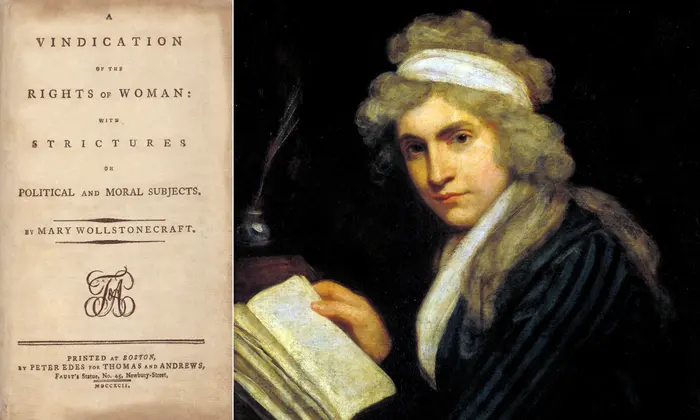
Furthermore, it is significant to consider, Muslim women exercised their right to vote when the women in the West couldn’t even think about it. Even, UK and US endowed their women the right to vote after the WWI.
[22]
[22]
Hence, women’s role in society must not be evaluated with reference to men’s role.
Iqbal’s poem "Aik Sawal" on European feminism must be considered before extending the unconditional support to the prevalent feminist movements in Pakistan.
[23]
Iqbal’s poem "Aik Sawal" on European feminism must be considered before extending the unconditional support to the prevalent feminist movements in Pakistan.
[23]
کوئي پوچھے حکيم يورپ سے
ہند و يوناں ہيں جس کے حلقہ بگوش
Koi Puche Hakeem-e-Yourap Se
Hind-o-Yunan Hain Jis Ke Halqa Bagosh
Ask the wise men of Europe, who have hung
Their ring in the nose of Greece and Hindustan:
[24]
ہند و يوناں ہيں جس کے حلقہ بگوش
Koi Puche Hakeem-e-Yourap Se
Hind-o-Yunan Hain Jis Ke Halqa Bagosh
Ask the wise men of Europe, who have hung
Their ring in the nose of Greece and Hindustan:
[24]
کيا يہي ہے معاشرت کا کمال
مرد بے کار و زن تہي آغوش
Kya Yehi Hai Maasharat Ka Kamal
Mard Bekaar-o-Zan Tehi Aagosh !
Is this their civilization’s highest rung—
A childless woman and a jobless man?
[25]
مرد بے کار و زن تہي آغوش
Kya Yehi Hai Maasharat Ka Kamal
Mard Bekaar-o-Zan Tehi Aagosh !
Is this their civilization’s highest rung—
A childless woman and a jobless man?
[25]
Answer to the poem Aik Sawal has also provided by Iqbal through his poem "Azaadi-e-Niswa’n" to resolve this issue. He says,
[26]
[26]
اس بحث کا کچھ فيصلہ ميں کر نہيں سکتا
گو خوب سمجھتا ہوں کہ يہ زہر ہے ، وہ قند
I know quite well one despoils, While other's like candy sweet:
I can't give a verdict true which needs of Quest can fully meet.
[27]
گو خوب سمجھتا ہوں کہ يہ زہر ہے ، وہ قند
I know quite well one despoils, While other's like candy sweet:
I can't give a verdict true which needs of Quest can fully meet.
[27]
کيا فائدہ ، کچھ کہہ کے بنوں اور بھي معتوب
پہلے ہي خفا مجھ سے ہيں تہذيب کے فرزند
I like to make no more remark and earn the wrath of present age:
Already the sons of modern cult ʹGainst me are full of ire and rage.
[28]
پہلے ہي خفا مجھ سے ہيں تہذيب کے فرزند
I like to make no more remark and earn the wrath of present age:
Already the sons of modern cult ʹGainst me are full of ire and rage.
[28]
اس راز کو عورت کي بصيرت ہي کرے فاش
مجبور ہيں ، معذور ہيں ، مردان خرد مند
The insight owned by woman can this subtle point with ease reveal:
Constrained and helpless, wise and sage, With knotty point they cannot deal.
[29]
مجبور ہيں ، معذور ہيں ، مردان خرد مند
The insight owned by woman can this subtle point with ease reveal:
Constrained and helpless, wise and sage, With knotty point they cannot deal.
[29]
کيا چيز ہے آرائش و قيمت ميں زيادہ
آزادي نسواں کہ زمرد کا گلوبند
It is an uphill task to judge what is more precious, lends much grace:
Emancipation for fair sex or aught, or emerald‐wrought superb neck‐lace?
-End-
آزادي نسواں کہ زمرد کا گلوبند
It is an uphill task to judge what is more precious, lends much grace:
Emancipation for fair sex or aught, or emerald‐wrought superb neck‐lace?
-End-
• • •
Missing some Tweet in this thread? You can try to
force a refresh

